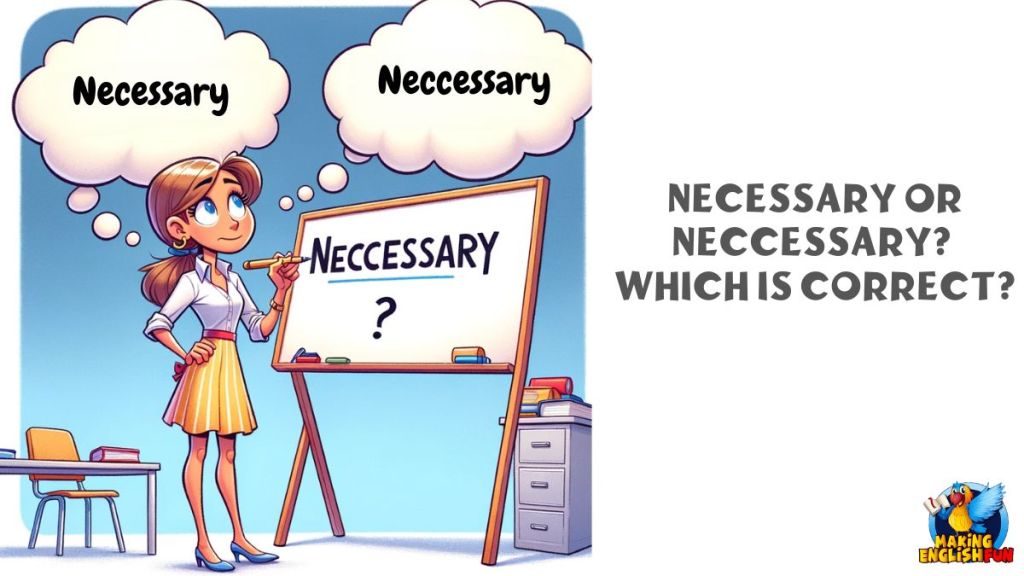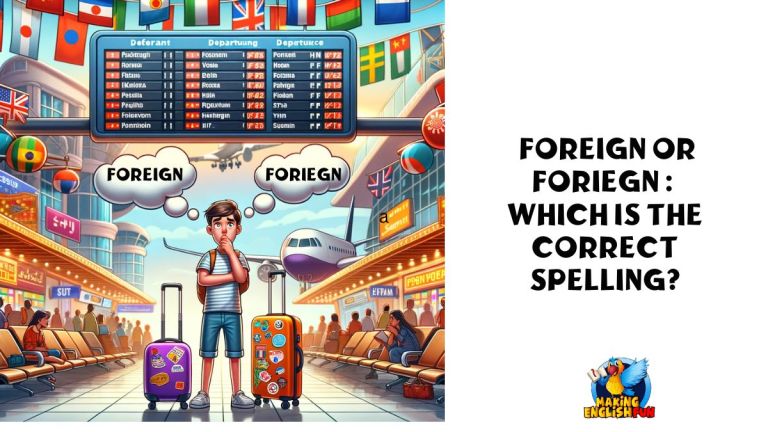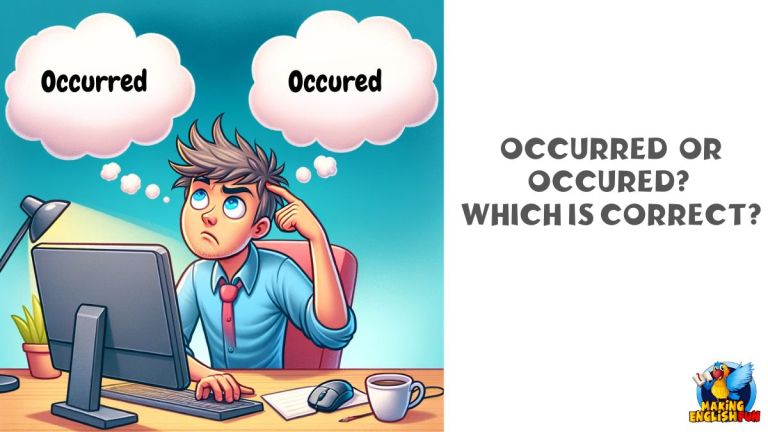Necessary or Neccessary? Which Is Correct?
A common spelling cofusion in English is deciding whether it’s “Necessary” or “Neccessary.” ( we still have to think about how many C’s and S’s are in this word)
This article aims to resolve this confusion by exploring the correct spelling and usage of this frequently used word, making it easier for you to remember and use it confidently in your writing.
We even have a helpful spelling tip below to help the spelling stick in your minds.

Correct Spelling and Definition
The correct spelling is “Necessary,” with one ‘c’ and two ‘s’s. “Necessary” means required, needed, or essential.
For instance, in the sentence, “It’s necessary to bring a passport for international travel,” the word implies that having a passport is essential for the activity mentioned.
The word “necessary” is an adjective and is often used to express the indispensability or essential nature of something in various contexts.
Common Spelling Error: Neccessary
Many people mistakenly spell “necessary” as “neccessary.”
This error usually stems from the pronunciation of the word, where the emphasis on the ‘c’ sound can lead to the assumption that it should be doubled.
However, according to standard English spelling rules, “necessary” is spelled with a single ‘c’ and double ‘s’.
Etymology and Historical Development
The word “necessary” has its roots in Latin, coming from the word “necessarius,” meaning “unavoidable, indispensable.”
It entered English through Old French. The spelling with one ‘c’ and double ‘s’ has been consistent throughout its history in English.
Understanding this etymological background can aid in remembering its current spelling.
Usage in Different Contexts
The word “necessary” is used in various contexts, both literal and abstract. In a literal sense, you might find it in a sentence like,
- “Water is necessary for life,” where it emphasizes the essential nature of water for survival.
- In a more abstract sense, it can be used in a statement such as, “Patience is necessary when learning a new skill,” highlighting the importance of patience as an essential trait for the learning process.
Understanding how “necessary” is used in different sentences can help you grasp its meaning and spelling better.
Comparison with Other Common Spelling Confusions
Necessary” is not the only word in English that poses spelling challenges.
Similar confusion is seen with words like “occurred” (often misspelled as “occured”) and “embarrassed” (frequently written incorrectly as “embarassed”).
Below is a comparison table for clarity:
| Correct Spelling | Common Incorrect Spelling |
|---|---|
| Necessary | Neccessary |
| Occurred | Occured |
| Embarrassed | Embarassed |
This table not only highlights the correct spellings but also reminds us of the common double-letter spelling issues in English.
We will be working through the list of easily confused words here on the site to help with your spelling dilemma’s as well.
Tips for Remembering the Correct Spelling
A simple mnemonic to remember the spelling of “necessary” is to think of a shirt with one Collar and two Sleeves.
This imagery aligns with the spelling of “necessary” – one ‘c’ and two ‘s’s.
Additionally, regular writing practice and active engagement with the word in various contexts can significantly help in memorizing its correct spelling.
Conclusion
In summary, “Necessary,” with one ‘c’ and two ‘s’s, is the correct spelling.
This word, essential in both spoken and written English, often appears in various contexts, from academic writing to everyday conversation.
Remembering the correct spelling is crucial, as it not only enhances the accuracy of your communication but also reflects your attention to detail in language usage.
FAQs / Reader Questions
Q1: Can you give more examples of words with similar spelling challenges?
Certainly! Words like “accessible” (often misspelled as “accesible”) and “aggression” (sometimes spelled as “agression”) also challenge spellers with their double letters.
Q2: Why do some words in English have seemingly irregular spellings?
English is a language with diverse linguistic influences, including Latin, Germanic, and French roots. These influences, combined with historical changes in pronunciation, contribute to the irregularities in spelling.
Q3: How can I become better at spelling in English?
Regular practice, reading widely, and using language tools like spelling games and apps can greatly improve your spelling. Also, learning the origins and meanings of words can provide additional context that aids memorization.
Q4: Is it important to always correct spelling mistakes?
Correcting spelling is important, especially in formal and academic settings. In casual communication, context and clarity are key, and minor spelling errors are often overlooked.
Q5: Does learning about spelling help with other language skills?
Yes, focusing on spelling can enhance your overall language skills, including vocabulary, reading comprehension, and written expression. It helps build a stronger foundation in language understanding and usage.






